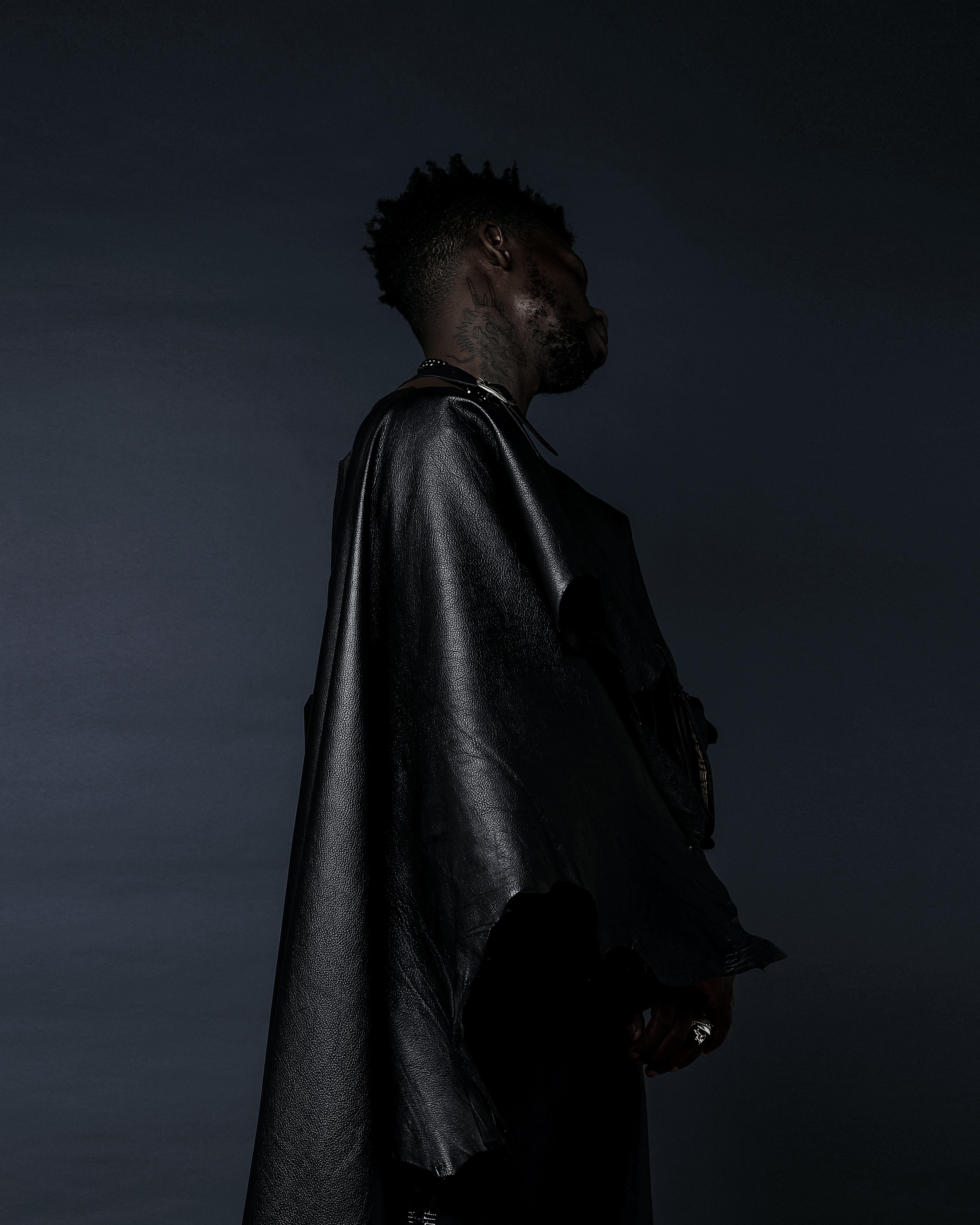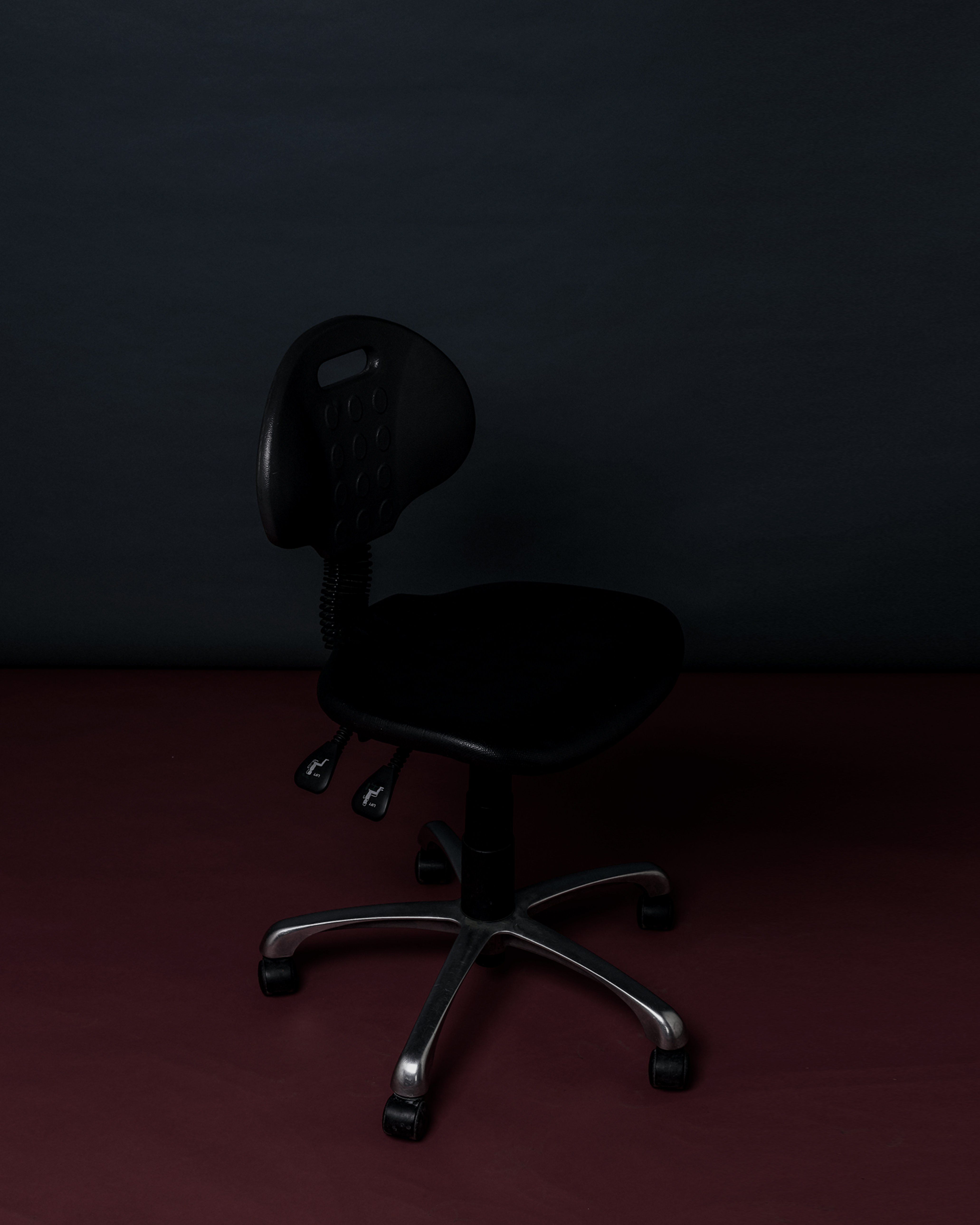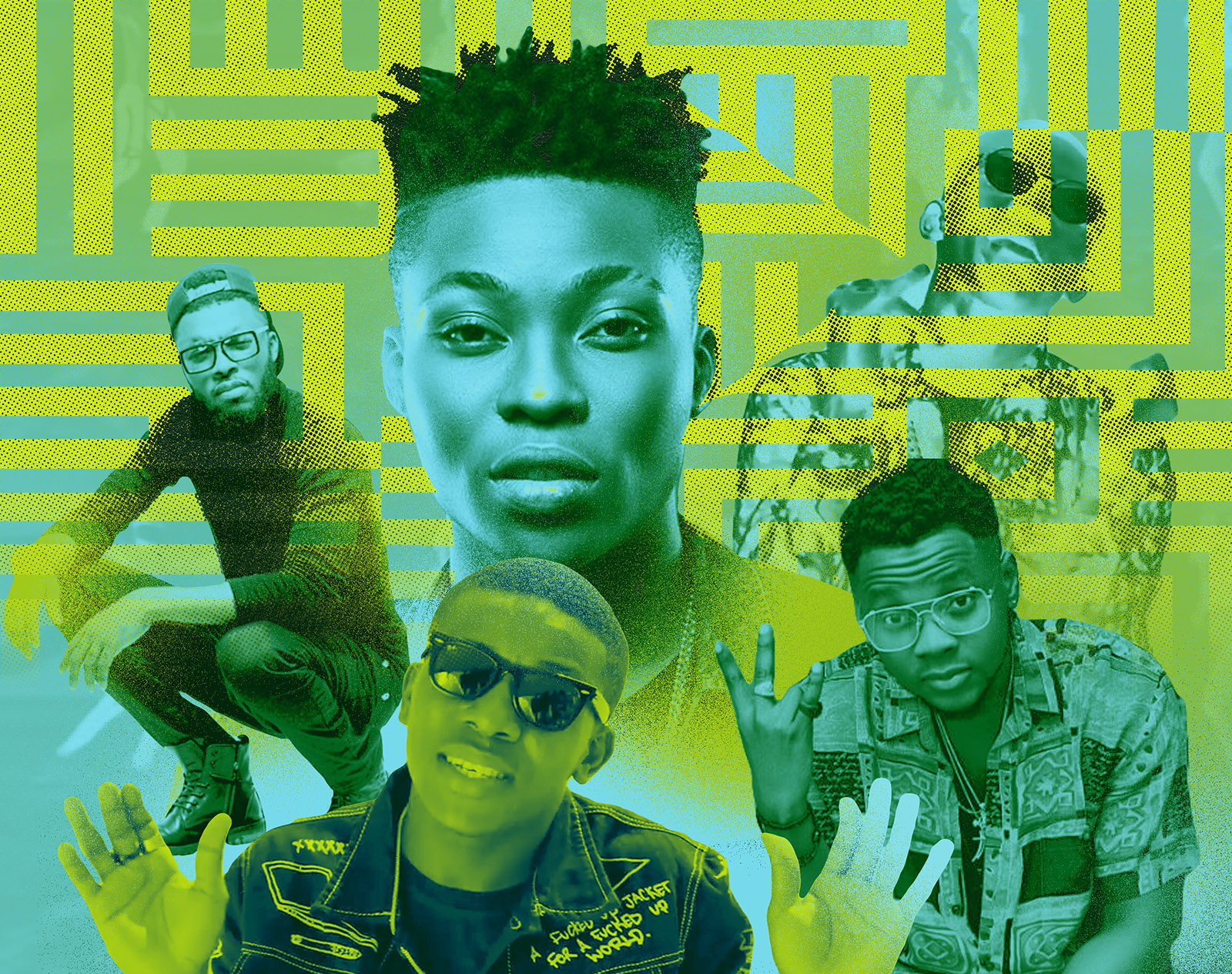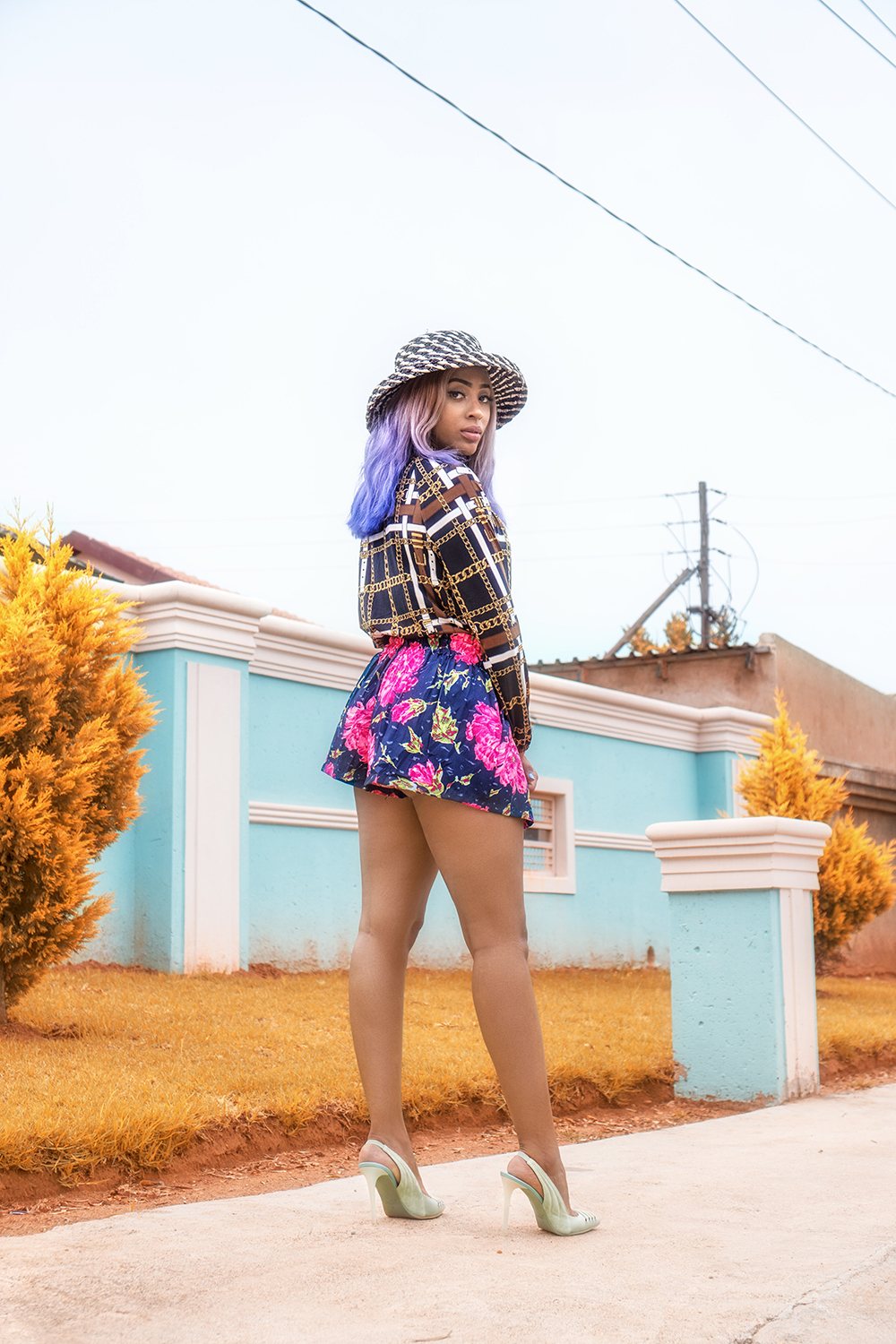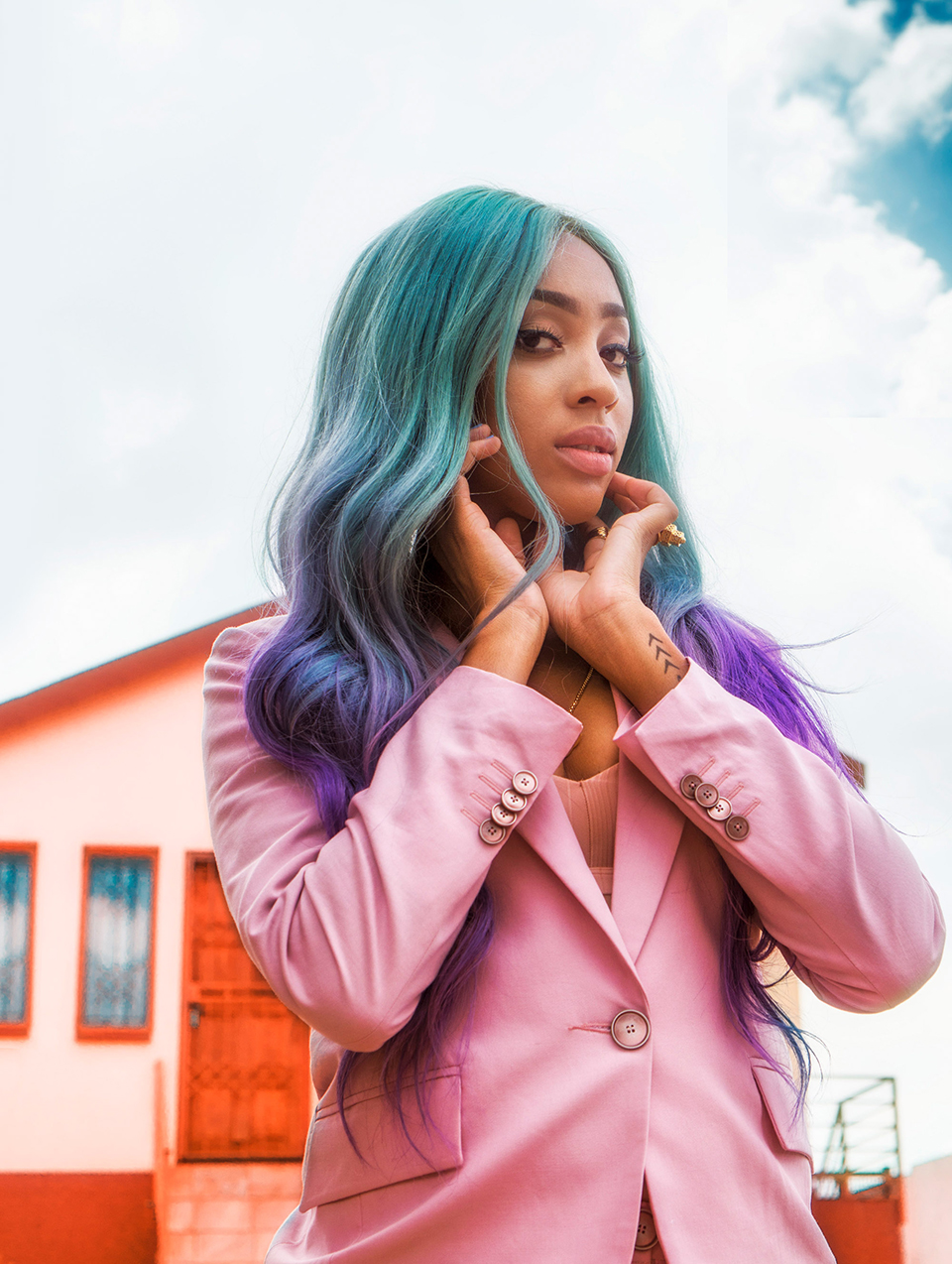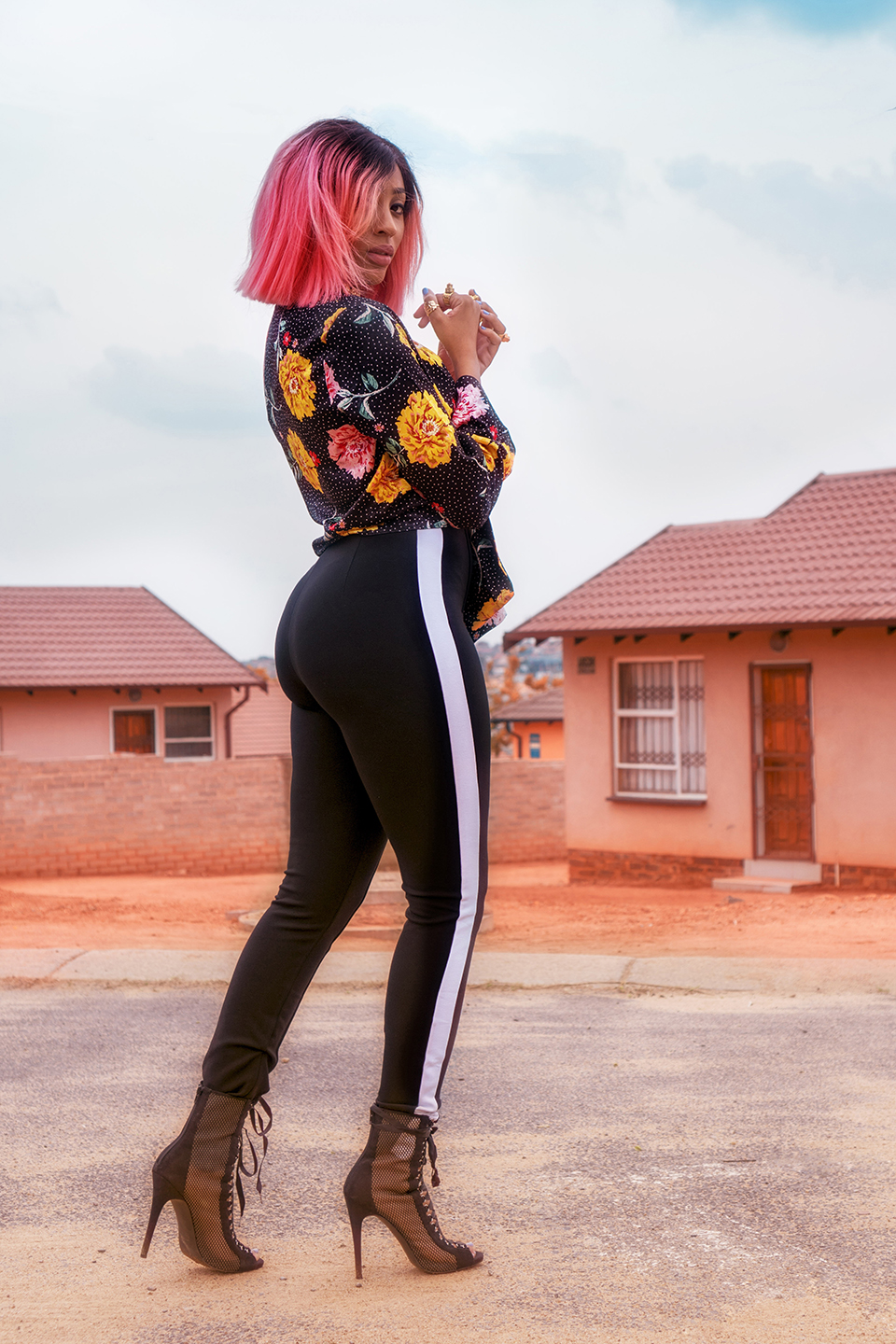A pool of blue light, ebb-flow bodies and scented smoke: It’s difficult not to close my eyes as I sink in. Little specks of orange rise to form shining patterns above our heads as we respond to the call ‘lighters up!’ Throats lifted to the stage lights, the crowd echoes Lucky Dube then plunges their hips into a Vybz Kartel grind. Every hour or so, Dancehall Queens ignite the stage with ululating hips and acrobatics, enthralling the audience with flips, splits and headstands.
It’s Thursday night at the Bassline — a long-standing institution on the Johannesburg reggae scene. DJs Admiral and Jah Seed have been holding down the decks in Newtown for fifteen years: first passing through Horror Café and Carfax to finally settle at the Bassline. Each week, streams of partygoers are drawn under the highway on Henry Nxumalo, through a corridor of rasta-themed street sellers and into the expansive dance hall.
‘Is Soweto here?’ a voice echoes from the pulpit, attracting a few muffled responses. He tries again. ‘Is Nigeria here?’ A choir rises in response. Finally: ‘Is Zimbabwe here?’ and a chorus reverberates throughout the room.
Bob Marley’s 1980 performance at the Zimbabwean Independence Celebrations has knotted reggae into the country’s cultural fabric. ‘Natty Dread it in-a Zimbabwe; Set it up in Zimbabwe; Mash it up-a in-a Zimbabwe; Africans a Liberate Zimbabwe’. A reggae soundtrack for an anti-colonial, Pan-Afrikan politics. Recycled, reconfigured and re-imagined, reggae has become enmeshed in the continent’s musical catalogues, along with its offshoot genres, dub, ska and dancehall. In each case, the continent has imprinted itself stylistically — an African reggae palimpsest.
In my meandering from one reggae nightclub to the next, I was also mapping the cartography of Johannesburg’s Afropolitan city. At its centre — Yeoville — often described as the United Nations of Africa. This year, Yeoville has been a nucleus for the city’s Africa Day celebrations, hosting parades, symposiums, and live performances.
My nocturnal meander pulled me down Rockey Street, where flashing lights spill bodies out onto the pavement. Pulsating bass lines reverberate back and forth between the building facades, many of them with club venues at their base. Long before you glimpse its signage, you can hear House of Tandoor: Reggae dancehall cascading from its balcony, overflowing with red, green and yellow. This was where Jah Seed and Admiral originally got their break. In contrast to the hefty R100 entrance fee at Thursday Bassline, Tandoor remains free. Above our heads, an arched tribute to Great African Leaders: Patrice Lumumba, Chris Hani, Julius Nyerere, Elijah Muhammed, Walter Sisulu. A dark, narrow entrance and two flights of metal stairs lead up to Tandoor’s rooftop. Plastic garden chairs splayed across the tiled floor, filled with mostly men (but some women) — a congregation of beer and bobbing heads. Another crowd alongside the bar, gathered around the two pool tables. The DJ booth, illuminated by wall art, attracts a crowd swaying and skankin’. It’s a hypnotic swirl of dreadlocks and headscarves, hoodies and low-slung jeans, denim and Timberlands.

Journey a little deeper into the city’s Reggae Dancehall scene. Pass through the tunnel of rumbling neon that ignites Rockey and Raleigh Streets, where pavement iconographies display the Lion of Judah interspersed with the continent’s technicolour flags. Soon enough you’ll find yourself in Hillbrow, at the unassuming Safari International Hotel.
Posted in a dark corner on the precipice of Banket and Yettah Streets, it’s easy to miss. Entering has a sense of theatre, stained with a Baz Luhrmann surrealism. Your ushers: a security guard in full military attire and a bulletproof vest, who peels back the creaking metal gates, locking them fastidiously behind each visitor. Alongside him, a butler in a red bowtie greets ‘good evening’ with grand gestures towards an extended foyer. The walls are draped in taxidermy and wooden carvings, and the furniture in plastic. It’s the cliff-edge of Afro-kitsch, but a gateway to an unexpected dancehall furnace.
Safari International hosts a weekly ragga/dancehall event, dubbed ‘Weddy Weddy Nights’. The ‘Weddy Weddy’ concept has teleported from the clubs of Kingston Jamaica into what feels like the most obscure recesses of Hillbrow, and many other night-time revelries across the globe.
‘Safari International Hotel’, my cab driver repeated as we passed through the city centre the following night. ‘I know it!’ he chimed, with a broad smile. Equally astounded at our shared knowledge, we took a moment to bask in the mutual recognition. The cab driver was Zimbabwean — a reggae dancehall enthusiast, living in Hillbrow. ‘Do you know African Vibez in Rosettenville?’ I asked. Another little-known reggae/dancehall venue, whose patrons, I was told, also celebrated Weddy Weddy. His smile told me yes.
African Vibez is another illuminated corner pinned at the hem of a dark-street-nowhere. A group of young men at the door present a pavement bouquet of some of the world’s most sought-after sneakers. Air Force 1s, Jordan’s, Nikes. The poster plastered alongside the door bears both the Zimbabwean and the South African flags. Once inside, familiar dancehall rhythms vibrate under our soles, this time crying out in Shona. The music is by far the best dancehall I’ve heard all week. Selektahs, hype men and young ragga performers have honed their craft. They deserve more than the stiff anticipation of a 9pm crowd, still too aloof to dance, still too aware of where to put their glistening feet and who might notice.

I travel almost twenty minutes back to the city centre. Cold, empty streets are dotted with night fires as people gather for warmth. My head spins with the enflamed imagery of a reggae-city after dark. ‘More Faya! More Faya! Burn it Up’ The ABSA building flashes a continental collage of Africa Day imagery. I smile, thinking about a simmering nocturnal culture, where reggae/dancehall/dub provides an under-acknowledged conduit for African cultural exchange. But it hasn’t all been ‘Iry’. Amid the crowd-calls for ‘One Love’, the affectionate embraces, the knowing smiles, and the resolute Afrocentrism, is another bar brawl, another man aggressively dragging his girlfriend from the room, another patron blacked-out on the dancefloor. I’m told that attendance at the Bassline dipped at the height of Xenophobic violence. As is the case with many nightclub cultures, Johannesburg’s Afropolitan reggae scene is a potent cocktail of fear and desire, rage and euphoria, the lone dancer and the collective.
Back to Braam for Rootz Rock Reggae, an outdoor reggae party where the audience gathers around barrel fires. South African, Zimbabwean and Mozambiquan artists take to the Kospotong stage at the end of Smit Street. Escaping through the metal barricades, the reggae rhythms of H20’s ‘African’: ‘I’m an African, no doubt that’s what I’m about’. Head tilted towards the sky, I basked under an imagined urban constellation, of all the reggae/dancehall parties I had discovered that week, each a night-fire of its own — Newtown, Yeoville, Hillbrow, Rosettenville, Braam. I hoped that others would connect the dots, explode our South African insularity, and take on the turbulence of an Afro-metropolis on faya.

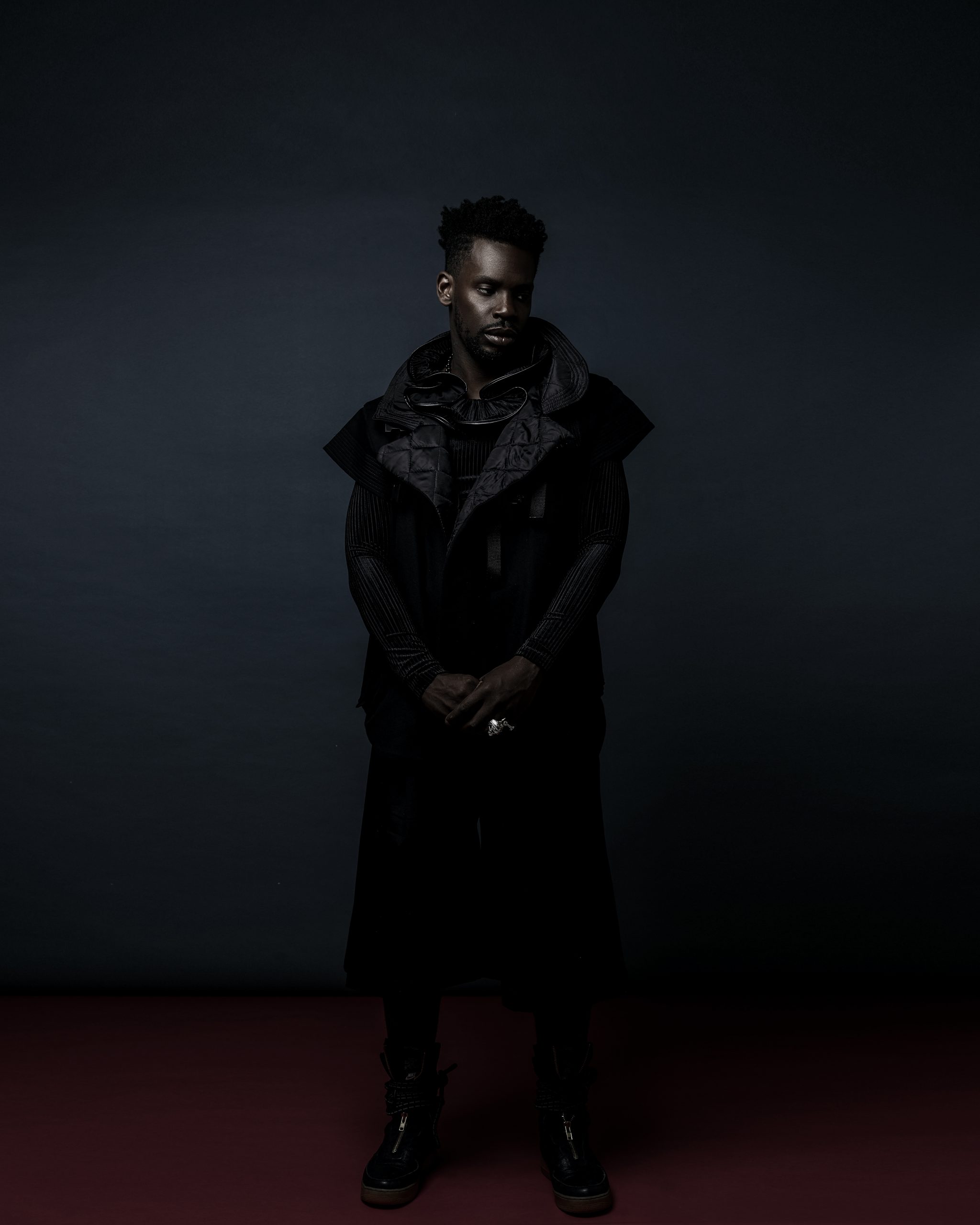
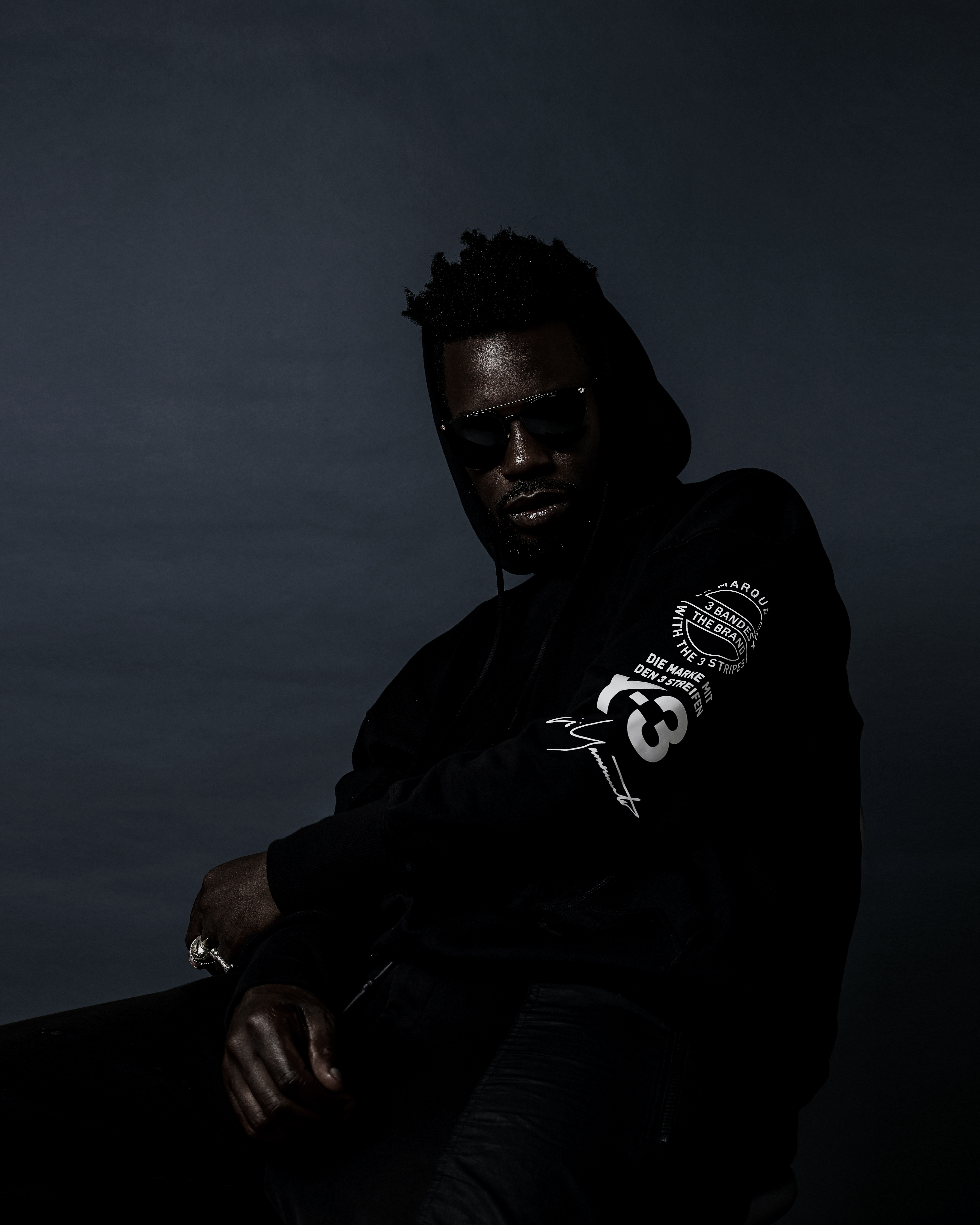
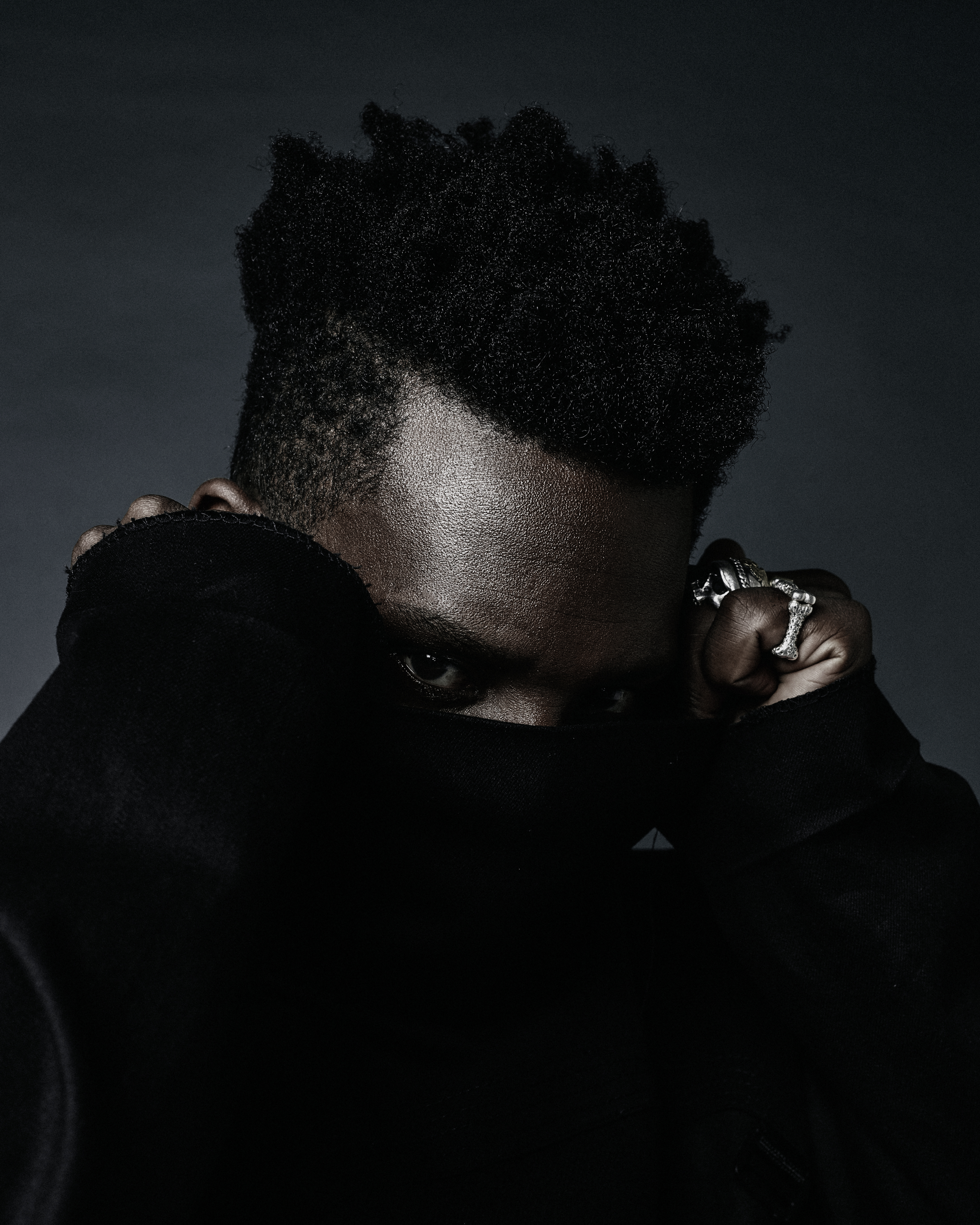 2016’s Security narratively focused its menace on a conceptual journey through London nightlife. When I asked Gaika about its origin and inspiration, he suggested that it was “about fear, money and dying, inspired by my time getting my ankles wet in some neon lit underworld. The truth is there, if you know what to listen for”. The word security conjures images of control, rigidity and surveillance cameras watching over clinical spaces. But the album sounds profoundly out of control, with Gaika’s howling tales of nights lost under a blizzard of drugs, guns, money or worse. At first listen, lyrics like “I’m getting smashed like the world ain’t real”, seem to echo the depressive hedonism of Future or The Weeknd. But while those artists can never seem to identify the causes of their existential malaise, Gaika pulls a brilliant rhetorical move with the closing song ‘
2016’s Security narratively focused its menace on a conceptual journey through London nightlife. When I asked Gaika about its origin and inspiration, he suggested that it was “about fear, money and dying, inspired by my time getting my ankles wet in some neon lit underworld. The truth is there, if you know what to listen for”. The word security conjures images of control, rigidity and surveillance cameras watching over clinical spaces. But the album sounds profoundly out of control, with Gaika’s howling tales of nights lost under a blizzard of drugs, guns, money or worse. At first listen, lyrics like “I’m getting smashed like the world ain’t real”, seem to echo the depressive hedonism of Future or The Weeknd. But while those artists can never seem to identify the causes of their existential malaise, Gaika pulls a brilliant rhetorical move with the closing song ‘
